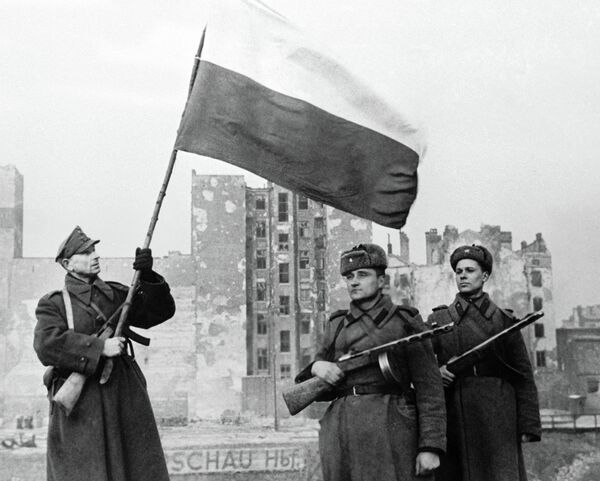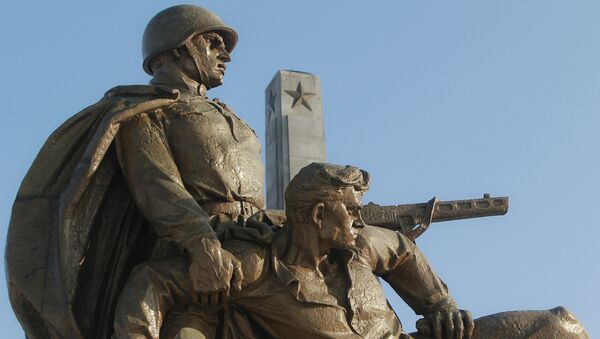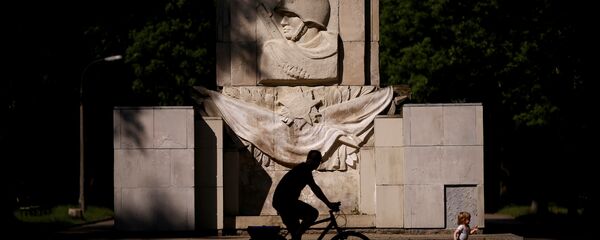On Thursday, Poland's lower house of parliament, the Sejm, adopted amendments to the country's so-called 'de-communization law', allowing for the demolition of about 490 Soviet-era monuments across the country.
The monuments, many of them dedicated to the sacrifices of the Polish and Soviet people during the Second World War, are expected to be destroyed following consultations with Poland's Institute of National Remembrance, the government-affiliated research institute which lobbied Warsaw to destroy the memorials in the first place.
The Russian Foreign Ministry slammed the Sejm's decision, saying that its aim seems to be to provoke a further aggravation of relations between Russia and Poland. Senate International Affairs Committee Chairman Konstantin Kosachev added that Poland's battle against its 'totalitarian past' itself smelled of "totalitarian practices," and compared the decision to raze the monuments to the practices of the Taliban and Ukrainian ultranationalists.
Leonid Slutsky, chairman of the Duma's Foreign Affairs Committee, said that the Sejm's decision was an "outrage" to the memory of the Soviet soldiers who fought and died in the fight to liberate Poland from Nazi occupation. An estimated 600,000 Red Army soldiers, along with tens of thousands of Polish patriots, died during the campaign to liberate Poland in 1944 and early 1945. Slutsky stressed that the decision was disrespectful not only to Russia, but to the "memory of the millions who gave their lives to free the world from the plague of fascism."

Civil Chamber Chairwoman Elena Sutormina said that it was particularly insulting that the lawmakers seemed to have deliberately chosen to approve the law on June 22, when people in Russia and across the former Soviet Union commemorated the anniversary of the June 1941 Nazi invasion of the USSR. The war on the Eastern Front, known across the former Soviet Union as the Great Patriotic War, claimed the lives of over 26 million Soviet people, including over 18 million civilians and 8 million soldiers.
Brod recalled that during the war, many Poles had fought together with the Soviet army. "These veterans, together with those citizens who honor the heroism of Soviet soldiers, constantly advocate for the defense of the monuments, and take care of the monuments," he said.
Political scientist Igor Shatrov told Radio Sputnik that the decision on the monuments was part of a broader campaign to spread Russophobia by Polish politicians, meant to distract the population from the country's real problems.
Poland, Shatrov noted, has problems not only with its economy, but in its relations with the European Union, including thanks to the fact that Brussels has denied them their desired 'special, leading role' in Eastern Europe. "In order to explain away all of the mistakes and absurdities of their domestic policy, the country's leaders are trying to create a new state – to jettison everything that once united the country with Russia and with other states," he said.
Poland's 'de-communization law' was signed by President Andrzej Duda in May 2016. The legislation prohibits honoring persons, organizations, events or dates said to 'symbolize communism' in public spaces.





